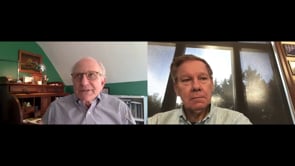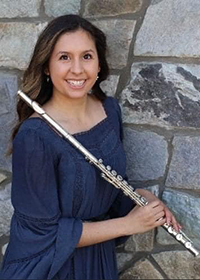In This Story
Read the joint statement from the Carter School's Diversity, Equity, and Inclusion Committee and the John Mitchell, Jr. Program, signed by Dr. Charles L. Chavis, Jr., and Dr. Sheherazade Jafari, who are Co-Diversity Advisors at the Carter School and Co-Chairs of the DEI Committee
Dear Carter School Community:
We write to you with an awareness that after last Wednesday (September 23, 2020), many of you are hurting and struggling to find hope as news broke that only one of the three police officers involved in the killing of Breonna Taylor will be charged—not for her actual killing, but for the significantly lesser charge of wanton endangerment. Sixty-five years ago, on the same date, a similar conclusion was reached when an all-white, all-male jury acquitted two white men of murdering Emmett Till.
As if COVID-19 was not enough, we continue to bear witness to the ramifications of this country’s failures to confront structural racism. The events of last week prompt the following question: “What would happen if justice was as real as historical trauma?”
Say Her Name, a slogan that was lifted up following the death of Sandra Bland, is a call that needs to be understood and centered as we navigate this current phase of the freedom struggle we are witnessing take place across this country and world. For far too long, the suffering of Black women has been overlooked, discounted, and cast aside. As our nation approaches a moment of reckoning, Black women—their work, their sacrifice, their lives, and their bodies—must not only matter but must also be centered if justice and peace are to be a reality for all people. In the words of Fannie Lou Hamer, "Nobody's free until everybody's free."
In the midst of the pain, suffering, and failures of justice and leadership, we must hold fast to the tools and the responsibilities we have, including our right to protest, to confront racism and all forms of injustice whenever and wherever we witness it, and to vote, as did those who came before us in the movement for freedom and justice. Some of them are still with us, like Diane Nash, and some of them we have lost this year, including Rev. C.T. Vivian, Congressman John Lewis, and Rev. Joseph Lowery.
As we continue to fight, remember that self-care is essential to this work; indeed, in the words of Audre Lorde, “caring for [oneself] is not self-indulgence, it is self-preservation.” Let us also treat each other with compassion and care, and a mindfulness that different members of our community are impacted differently by this moment, and the many moments like it.
Please know that we are here for you, and we are all in this fight together. If you need immediate counseling, please contact Counseling and Psychological Services (CAPS). If you would like to share your thoughts with us, please send those forward—our ears and hearts are always open. We also encourage you to check out the joint statement on Justice for Breonna Taylor by University Life’s Office for Coalition Building and Diversity Education (CBDE) and the Office of Diversity, Inclusion, and Multicultural Education (ODIME) and LGBTQ+ Resources at George Mason University.
In pursuit of peace and justice,
Charles L. Chavis, Jr., PhD (he/him/his)
Co-Diversity Advisor
Co-Chair, DEI Committee
Director, John Mitchell Jr. Program for History, Justice, and Race
Sheherazade Jafari, PhD (she/her/hers)
Co-Diversity Advisor
Co-Chair, DEI Committee
Director, Point of View International Retreat and Research Center
The Diversity, Equity, and Inclusion (DEI) Committee is committed to supporting and advancing a more equitable, inclusive, and diverse Carter School community. The DEI Committee provides support, resources, and opportunities for building an inclusive and equitable community that recognizes the value that diversity brings among our students, faculty, and staff. We actively center an intersectional anti-racism approach in our work. Visit our webpage to learn more about the Committee, join our mailing list, and get involved.
The John Mitchell, Jr. Program for History, Justice, and Race envisions an equitable and just world. This is not a world in which the traumatic legacy of the brutalities of dehumanization has been erased from the historical record. Rather, it is a world in which the ideology of White supremacy has been deconstructed in order to provide platforms that center marginalized and minoritized voices. This centering involves the creation and facilitation of spaces where dialogue and narrative change occur across all institutions with persons of all backgrounds. Visit our webpage to learn more about the Mitchell Program, join our mailing list, and get involved.


